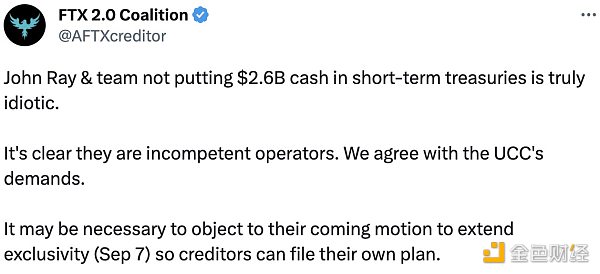Multiple Free Trade Zones First Pilot Blockchain Technology Promotes Enterprise Winding
Source: Securities Daily
Author: Liu Meng
On the 3rd China Enterprise Reform and Development Forum held on November 3, Zheng Deyan, member of the Standing Committee of Jinan Municipal Committee and deputy mayor, introduced that Jinan has issued a block in the Jinan area of the China (Shandong) Pilot Free Trade Zone. Chain storage and delivery of digital business licenses. In the next step, Jinan hopes to create new application scenarios such as blockchains in the Jinan area of Shandong Free Trade Zone, and promote the enterprises in the free trade zone.
Zheng Deyan expects that once companies are in the chain, they will not need any licenses for their interactions with each other and with financial institutions and government departments. In addition to enterprises, Jinan will try first, promote the application of blockchain technology in convenience services, and improve work efficiency.
- Lawyer's point of view | Analysis of the regulatory environment behind the investigation of the currency exchange
- This little brother traveled around the world for 1 year with 1 bitcoin, and also met V God, John McAfee.
- After the market value shrinks by 80%, Overstock.com calls the blockchain gambling
Then, what kind of work needs to be done to promote the enterprises in the free trade zone? Xiao Benhua, deputy director of the Free Trade Zone Research Institute of Shanghai Lixin Accounting and Finance College, told the "Securities Daily" reporter that the business license should be digitized first, and then the information sharing of the enterprise information in the relevant entities should be realized through the blockchain technology.
"The blockchain technology can be widely used in government affairs, such as the management of the provident fund, the management of warrants, etc. The use of blockchain technology in government affairs can improve the efficiency of work and speed up the examination and approval." Xiao Benhua further explained.
Fu Yifu, a senior researcher at Suning Financial Research Institute, holds the same opinion. He said that the degree of informatization of most enterprises is still low, especially for small and micro enterprises. To promote the business of the free trade zone enterprises, it is first necessary to carry out informationization and digital transformation of enterprises in the free trade zone. In-depth data collection for each business segment of the enterprise to achieve comprehensive digitalization of products, services and channels. At the same time, to enhance trust and cooperation between enterprises, according to their own characteristics, choose the follow-up chain path, expand and accumulate credit on the chain.
It is worth mentioning that many free trade zones have proposed the application of blockchain technology in many fields. Taking Shandong Free Trade Zone as an example, in October, the “enterprise start-up” and “no-personal intervention smart approval” system based on blockchain technology and big data were officially launched, and the Jinan area of the Pilot Free Trade Zone took the lead in “second batch”. The new era of "doing a second" and "not meeting approval" has achieved a leap from "running at most once" to "running once without". Since the operation of the Jinan Area Comprehensive Service Center for more than a month, by the end of October, the number of newly registered enterprises has reached 1,421.
Taking the Hainan Free Trade Zone as an example, in September last year, the Hainan Provincial Bureau of Industry and Information Technology approved the establishment of the Hainan Free Trade Zone (Hong Kong) blockchain test zone, encouraging the pilot zone to boldly test, boldly and independently reform, and actively promote institutional innovation. And industrial innovation, seize the commanding heights of the blockchain industry, promote the application of blockchain technology, and foster the development of 100 billion new industries.
Wang Jing, director of the Ministry of Industry and Information Technology of Hainan Province, said that the pilot area should gather the world's top blockchain talents with a global concept; explore the blockchain technology in cross-border trade, cross-border payment, and general benefit with the concept of first-in-first-trial test. Application in the fields of finance and credit evaluation, fostering the development of new blockchain formats; applying the concept of application-driven industry, in-depth cooperation with top domestic research institutions and blockchain head enterprises, creating blockchains in Hainan Ecological Software Park In the experimental area, explore institutional innovation, plan a number of application demonstration projects to promote industrial development, and foster the construction of blockchain industrial clusters.
In August this year, the State Council issued six new free trade zone plans, and proposed various pilot tasks for differentiated reforms. The "Securities Daily" reporter combed and found that the promotion of trusted transactions based on blockchain was included in the main tasks and measures of the Free Trade Zone. The overall plan of Hebei Free Trade Zone is proposed to lead the high-quality development of Xiong'an New District and build a demonstration zone for digital business development. Promote big data trusted transactions based on technologies such as blockchain and electronic identity (eID) authentication. Support for data asset management, security assurance, data trading, settlement, delivery and financing.
Speaking of blockchain related technologies in the free trade zone, Xiao Benhua said that the application of blockchain technology is essentially an institutional innovation. Through the extensive application of blockchain technology, social trust costs can be reduced and collaboration efficiency can be improved. This is consistent with the reform direction of the Free Trade Zone to reduce institutional transaction costs through institutional innovation. Blockchain technology is also promising in improving trade and investment facilitation and liberalization.
Liu Xiangdong, a researcher at the Economic Research Department of the China International Economic Exchange Center, told the "Securities Daily" reporter that although the application of blockchain technology has been at the forefront of the policy, it has more applications in the fields of digital finance and Internet of Things. However, technological innovation is a double-edged sword. To this end, it is a pioneering test in the free trade zone. After the technology is mature, it will be replicated and promoted, which will help reduce the potential risks brought by the application of new technologies. In general, the application of blockchain related technologies in the free trade zone will help to achieve data exchange and information sharing across regions, departments and levels, improve efficiency, and conduct stress testing and risk management more effectively.
We will continue to update Blocking; if you have any questions or suggestions, please contact us!
Was this article helpful?
93 out of 132 found this helpful
Related articles
- More than the original in Wuzhen, waiting for you to come to the appointment
- Babbitt Column | Career View in the Blockchain Era
- The study said that a giant whale on Bitfinex has shaken the bull market in 2017. Is it a real hammer?
- 3 days countdown, how to visit Wuzhen Conference? What about transportation accommodation? Seeing this one is enough.
- Twitter Featured|Encryption Investors: Say the whales manipulate the big bull market in 2017, which is the performance without industry experience.
- DCEP vs Libra: Digital Currency Competition in the Context of Globalization
- ETH 2.0 is coming online, what are the main changes?






